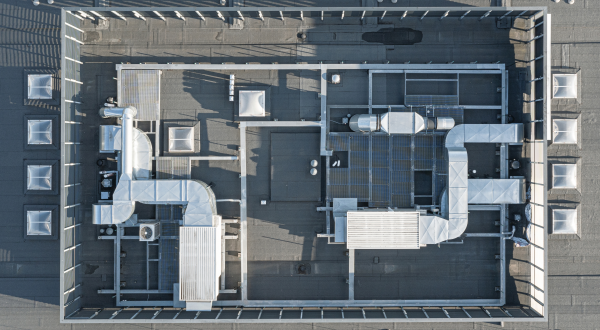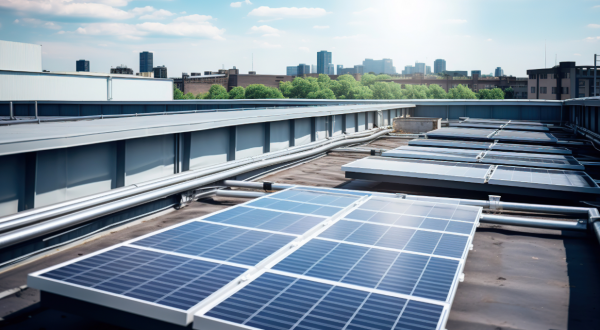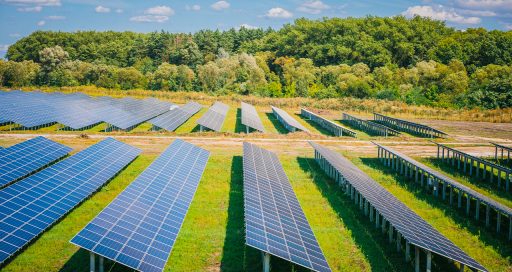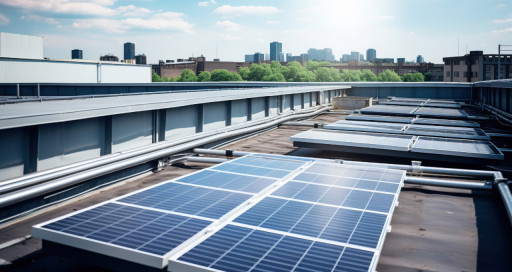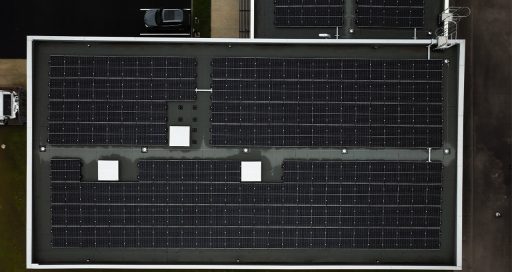VINCI Energies ramps up solar PV on commercial rooftops
Reading time: 5 min
VINCI Energies has embarked on a strategy aimed at installing solar photovoltaics on the rooftops of its buildings, a market abandoned by investors in solar PV, through a special purpose vehicle named ELIOVE.
VINCI Energies is accelerating the energy conservation strategy for its real estate portfolio by installing solar on all technically suitable buildings.
The climate emergency is forcing all stakeholders in the energy sector (suppliers, operators and businesses) to step up energy efficiency initiatives across their operations. One option that has been insufficiently explored is to install solar panels on the rooftops of commercial buildings.
So far, only retail and logistics firms have started deploying solar PV panels on the rooftops of their hypermarkets and warehouses because they are obliged to do so by law.
“The approach VINCI Energies has adopted with Eliove is unique.”
As far as office buildings are concerned, there is much still to do. “The market has been totally overlooked by solar developers for economic reasons. The age or even dilapidation of a significant proportion of assets can put a heavy strain on the investments that need to be made before being able to adopt solar systems. What’s more, the relatively narrow area available on rooftops compromises the profitability of operations,” explains Houda Matta, manager of the ELIOVE business unit, a VINCI Energies subsidiary set up at the end of 2021 to bring solar PV to Group buildings.
80 feasibility studies
“We are our own best solar power producers” could therefore be the slogan of the new entity which was initiated by VINCI Energies senior management to accelerate a strategy to deliver sustainable consumption across the Group’s property assets by installing solar PV panels on all technically eligible buildings.
ELIOVE’s roadmap involves listing and auditing the roofspace of the 160 buildings owned by the Group in France, then going on to target the 400 buildings it rents.
Some 80 feasibility studies have already been conducted. It appears that more than half of the buildings do not lend themselves easily to panel installation. That might be because the retrofit costs are too high, the structure of the framework is unable to support the load of a solar installation over time, the rooftop suffers from shading, a lease is about to expire, or due to the supposed resale of the property.
Contractually capped electricity prices
ELIOVE’s aim is to enable VINCI Energies business units to install panels on their buildings without any upfront financial or human investment and without risk.
It manages all of the phases of the project for its clients, including stability calculations for sections of existing framework, consumption profile, layout and shading studies, production simulation, administrative steps (prior declaration of works, ENEDIS application for connection to the public electricity distribution network) and negotiations with metal workers, roofers and waterproofing experts regarding the completion of re-roofing or structural reinforcement works.
It also handles the coordination with technical inspection services to verify that the project is sound, the project management of the re-roofing or structural reinforcement, the implementation of systems integration, and regulatory follow-up. All of this forms part of a 20-year operation and maintenance arrangement.
The fact that the price of the electricity produced is contractually capped offers the client company considerable security at a time when electricity prices are soaring and when each contract renegotiation leads to a sharp rise in rates.
Self-consumption model
“The approach VINCI Energies has adopted with ELIOVE is unique,” stresses Aymeric Tissandier, director at VINCI Facilities. “Firstly, because we’re the only ones making inroads into the office building rooftop market. Secondly, because we’re employing our own business units to work on our own buildings. And lastly, and most importantly, because we’re committed to a self-consumption model in which players in the solar industry install panels and pay rent to client companies with the aim of selling on generated electricity.”
Return on investment in solar PV is not achieved before a 15 or 20-year period. But ELIOVE was primarily set up in order to improve the Group’s environmental performance. The investor, VINCI Energies, has therefore chosen to limit the risk to its own business units. ELIOVE’s first client, the company IEP, based in Limoges in west-central France, should see its 810m²-roofspace fitted with solar panels in the autumn of 2022. Some 15 other operational projects are currently being launched.
17/11/2022
